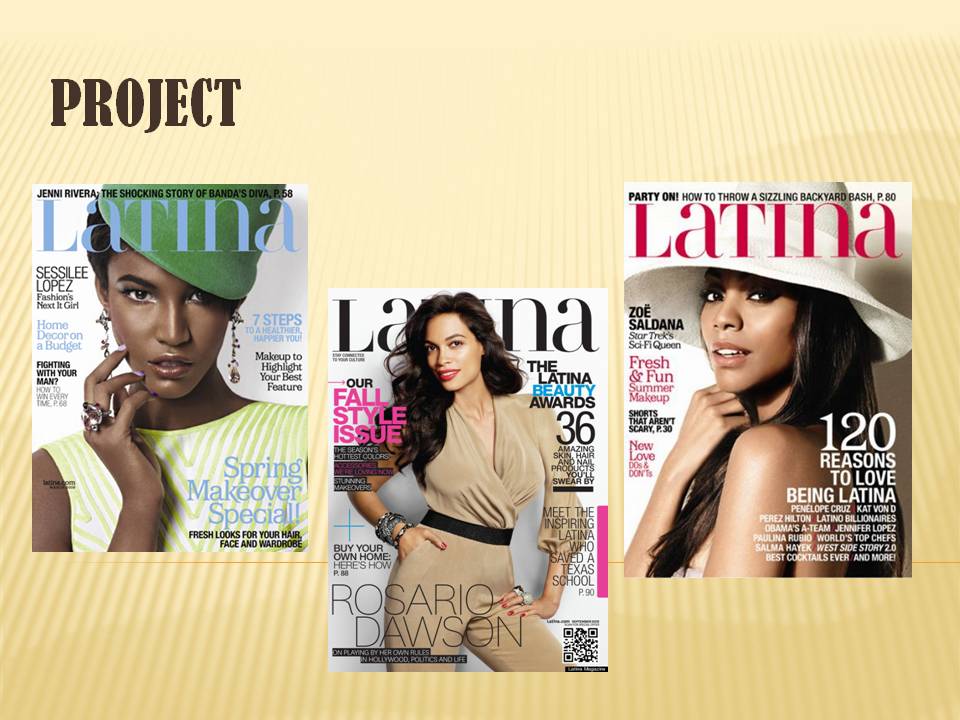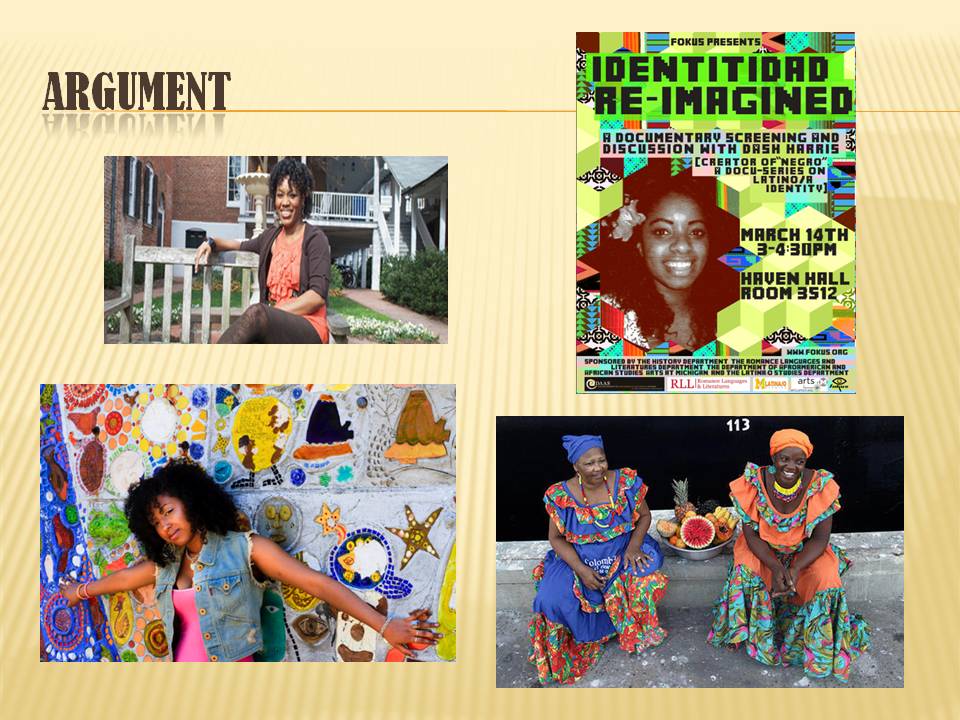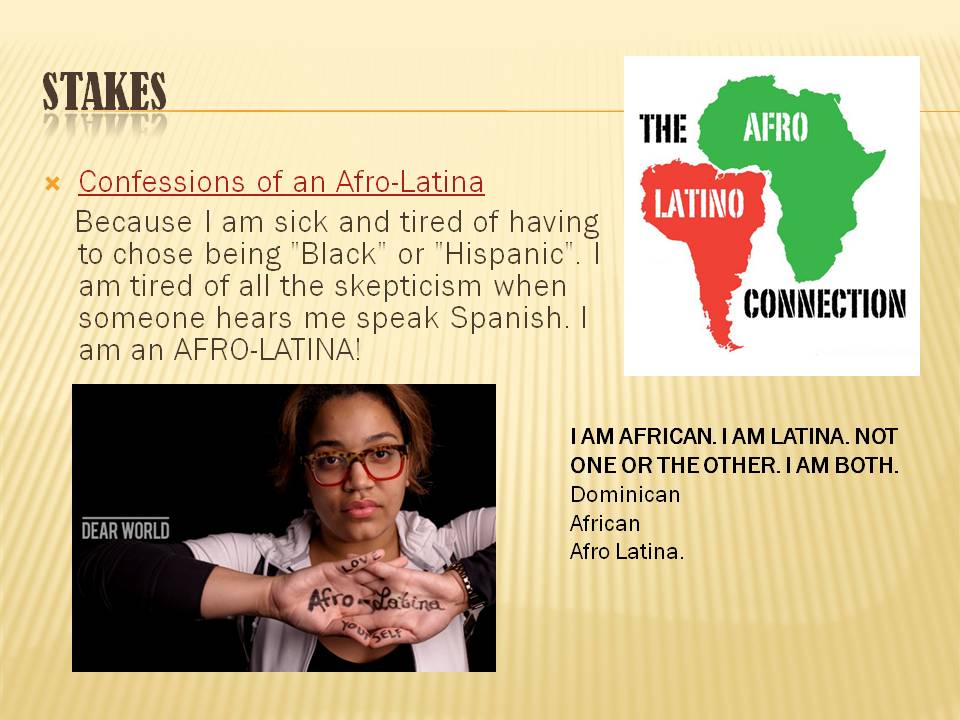PROJECT
- Talk about Latina magazine (how are these images tied to ideology?)
- POSITION YOURSELF IN YOUR RESEARCH (I am a Latina but do not self-identify as a Afro-Latina – address why that is important in my positionality)
- Visual representation plays into the commodification of a certain type of identity
- What kind of fantasy does Latina construct and promote?
- How does Latina politically define Afro-Latinidad?
- In the media the Latina body is not white, but does reproduce Eurocentric ideals of beauty often for capitalist demands.
- The Latina body is consumable as a hyper-sexual curvy body (relationship between whiteness and exotic “foreignness”)
- How is the African Diaspora represented in magazines such as Latina?
- How do readers consume these images/representations?
- I will specifically look at the 2008-2012 editions, which will include an analysis of both the online website and the hard cover production.
- Need to address – do not want to completely reject Latina magazine. Instead I want to look at the complexities of the magazine itself. Does the magazine produce hegemony, while simultaneously anchor resistance? If so, how is that resistance read? Is it different than the resistances we find in Tumblr?
- Are people responding to Latina magazine in virtual spaces like Tumblr? If so, how and why? Resistance?
ARGUMENT
- Afro-Latinas as a subculture within the Laitin@ imaginary. How do these productions of Latinidad get played out in the public sphere?
- Tumblr – a new set of technology – a blogging site
- As of march 2, 2013, Tumblr has over 96 million blogs
- Available in iphone apps and blackberry smartphones
- Founded in 2007 by David Karp and Marco Arment
- Service is most popular with teens and college-aged users
- Half of the Tumblr visitor base is under the age of 25
- 12 languages available
- I aim to treat Tumblr as an actor itself (why?)
- Had limitations. Ex) limit amount of posts, must obey IP rights and regulations
- What is the public-ness of these virtual spaces?
- Are there multiple spaces?
- How are people talking about Tumblr as a narrative space?
- Linguistic challenges
- Diaspora politics
- Privilege (how does privilege look like in virtual spaces like Tumblr?)
- How is technology accessed?
- Key Point: Do these resistances only stay in virtual spaces?
- Is Tumblr both a material and a discursive space?
STAKES
This section needs more work. Need to unpack more of my theoretical framework in order to address the larger stakes. I will also look at James Clifford's book, Routes: Travel and Translation in the Late Twentieth Century, as recommended by Kim.
- Not making an argument of the magazine itself, but I am using the magazine as a production of identities that allow us to look at the larger stakes.
- Neoliberal, contemporary capitalism agendas & postfeminism, and post-racialism
- mobilization of identity and meaning in neoliberal discourses
- Must use the magazine and Tumblr to interrogate the politics of identity production within the larger contexts.
- Paige West and Tsing as fundamental theories in my theoretical framework
- West – neoliberalism produces both hegemony and counterhegemony
- Tsing- relationship between identity, capitalism and social media is messy and has micro-sites of resistance that are different.
This section needs more work. Need to unpack more of my theoretical framework in order to address the larger stakes. I will also look at James Clifford's book, Routes: Travel and Translation in the Late Twentieth Century, as recommended by Kim.



 RSS Feed
RSS Feed
